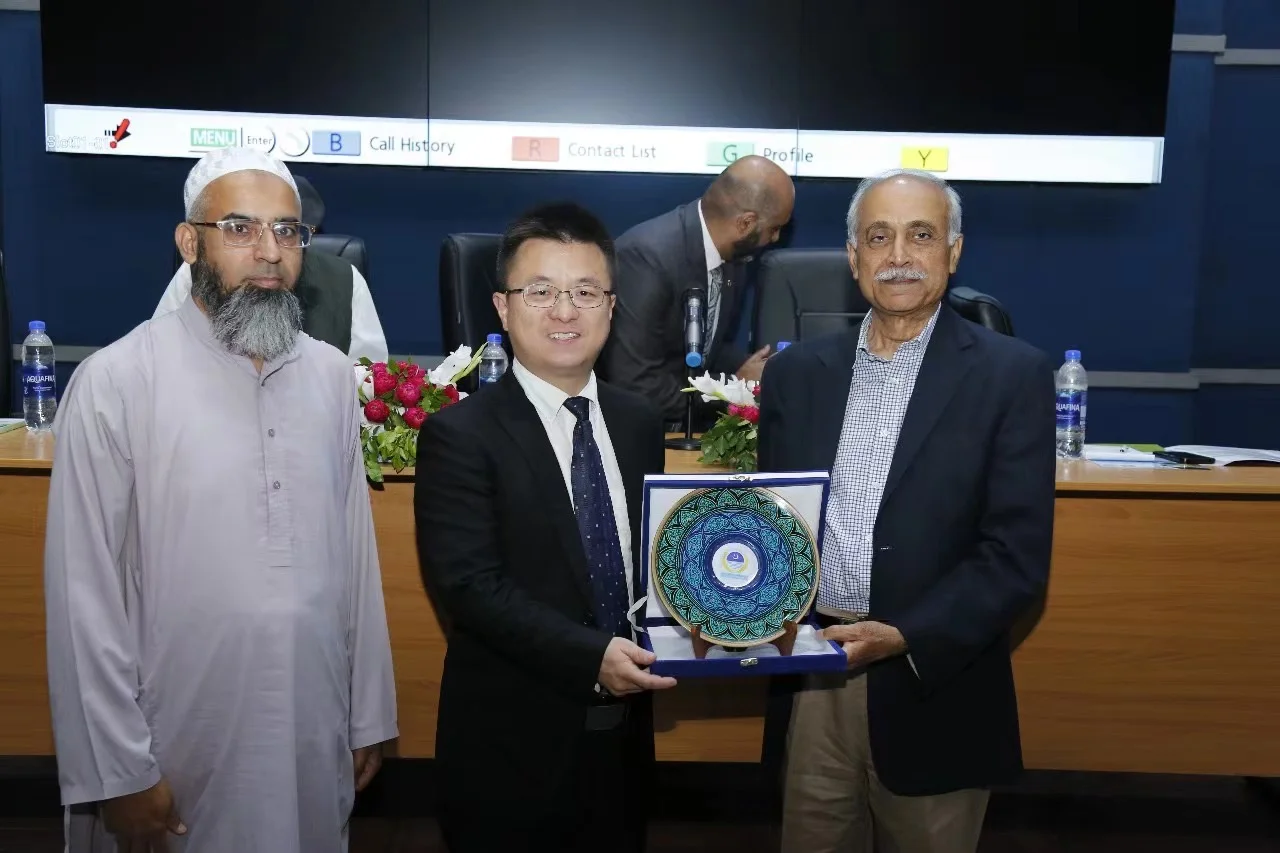Intelligent agriculture is poised to transform Pakistan’s agricultural landscape, promising a food-secure future for the nation. The establishment of the Pak-China Joint Lab for Artificial Intelligence and Smart Agriculture at the University of Agriculture Faisalabad (UAF) marks a crucial step in this direction. It aims to leverage technology to address the challenges facing Pakistan’s agricultural sector. This sector contributes 22.9% to the GDP and employs 37.4% of the workforce.
Bridging the Yield Gap: A Data-Driven Approach Through Intelligent Agriculture
One of the primary aims of embracing intelligent agriculture is to bridge the significant yield gap in major crops. While Pakistani wheat farmers currently average 2.26 tons per hectare, there is potential to reach 6.80 tons per hectare through optimized practices. Similar disparities exist in cotton (1.87 tons/ha actual vs. 4.30 tons/ha potential) and rice (2.88 tons/ha actual vs. 5.20 tons/ha potential). Intelligent agriculture offers a data-driven approach with precision fertilization, irrigation, and pest control capabilities to achieve these higher potential yields. This initiative is expected to significantly enhance crop management and productivity in Punjab. Punjab accounts for approximately 76% of Pakistan’s total annual grain output.
Combating Climate Change by Building Resilience
Climate change poses a significant threat to Pakistan’s agricultural productivity. It includes rising temperatures, changing rainfall patterns, and an increase in extreme weather events. Intelligent agriculture offers tools and strategies to build climate resilience within the sector. Real-time data analysis of crop health and environmental conditions, coupled with predictive modeling, can inform early warning systems for droughts, floods, and other climate-related risks. This allows for proactive adaptation measures and ensures greater stability in agricultural production.
This data-driven approach is particularly crucial in addressing Pakistan’s water scarcity challenges. Severe heat waves and water shortages increasingly impact farmers. Intelligent agriculture facilitates the implementation of precision irrigation techniques that optimize water use based on real-time crop needs. Sensors in the field can monitor soil moisture levels and microclimate conditions. They can even predict crop water requirements, allowing for targeted irrigation that minimizes waste and maximizes efficiency. AI algorithms can also analyze weather patterns and predict drought conditions. They can optimize water resource allocation across different agricultural regions, ensuring sustainable water management for agriculture.
Empowering Farmers, Creating Jobs: A Technology-Driven Future
The transition to intelligent agriculture in Pakistan prioritizes inclusivity and accessibility for all farmers. The project aims to directly benefit local farmers. Around 600 farmers participated in the pilot applications, demonstrating its impact. Take, for example, the experience of Mohammad Malik, a local farmer who initially was skeptical about the technology but now embraces its benefits. “We now have a more accurate grasp of the water and fertilizer needs of crops,” says Malik.
This approach avoids over- or under-watering as we did in the past, thus reducing input costs. Malik highlights the tangible impact on farmers’ livelihoods. Training programs and resources provided in local dialects empower even small-scale farmers to adopt and benefit from these advanced technologies. This includes training on the use of cutting-edge technologies like drones for crop monitoring. It also involves training in high-throughput plant phenotyping for data collection. Techniques like yield mapping are taught for informed decision-making.
Furthermore, intelligent agriculture will generate new employment opportunities in rural areas. These include specialized roles in AI-powered farm management, data analysis, drone operation, and other technology-driven agricultural services. The integration of these advanced agricultural technologies will increase efficiency and productivity across 25,000 villages in Punjab. It aims to encourage diversification in the rural economy. Additionally, it opens up new avenues for employment and income through tech-based farming solutions.
Also See: Wheat Crisis? Pakistan’s Data-Driven Fix
Intelligent Agriculture: Global Significance and International Collaboration
Pakistan’s adoption of intelligent agriculture holds global significance. It demonstrates a proactive approach to addressing food security challenges in a changing climate. This is particularly crucial considering that, according to the World Food Program, 36.9% of Pakistanis are food insecure. Among them, 18.3% are facing a severe food crisis, despite the nation being a major wheat and rice producer. The initiative has garnered support from international organizations like the World Bank and the Asian Disaster Management Centre, underscoring its potential impact.
This collaboration with China extends beyond technology implementation. It also involves sending Pakistani researchers and postdoctoral fellows to China for specialized training in AI technologies. This exchange of knowledge and expertise is crucial for building local capacity and ensuring the long-term sustainability of the intelligent agriculture initiative in Pakistan. The Joint Lab itself boasts a skilled team of 9 doctors and several masters and engineers dedicated to developing high-throughput crop monitoring projects.
By embracing intelligent agriculture, Pakistan is not only investing in a food-secure future for its people but also positioning itself as a leader in agricultural innovation within the South Asian community. This data-driven, technology-powered transformation of the agricultural sector holds the key to a more sustainable, resilient, and prosperous future for Pakistan.
This news story is covered by Najam ul Hassan, Junior Research Associate at South Asia Times (SAT).



![Ukrainian and Russian flags with soldier silhouettes representing ongoing conflict. [Image via Atlantic Council].](https://southasiatimes.org/wp-content/uploads/2026/02/2022-02-09T000000Z_1319661209_MT1NURPHO000HXCNME_RTRMADP_3_UKRAINE-CONFLICT-STOCK-PICTURES-scaled-e1661353077377.jpg)


